
What did Jesus mean when he said “those who eat my flesh and drink my blood have eternal life” (John 6:54)? Does being a Christian mean we are supposed to be cannibals? It’s no wonder a bunch of Jesus’ disciples left him after that zinger.
Here is a visual meditation on John 6, created in 2018. The image comes first, followed by a brief commentary. Enjoy.
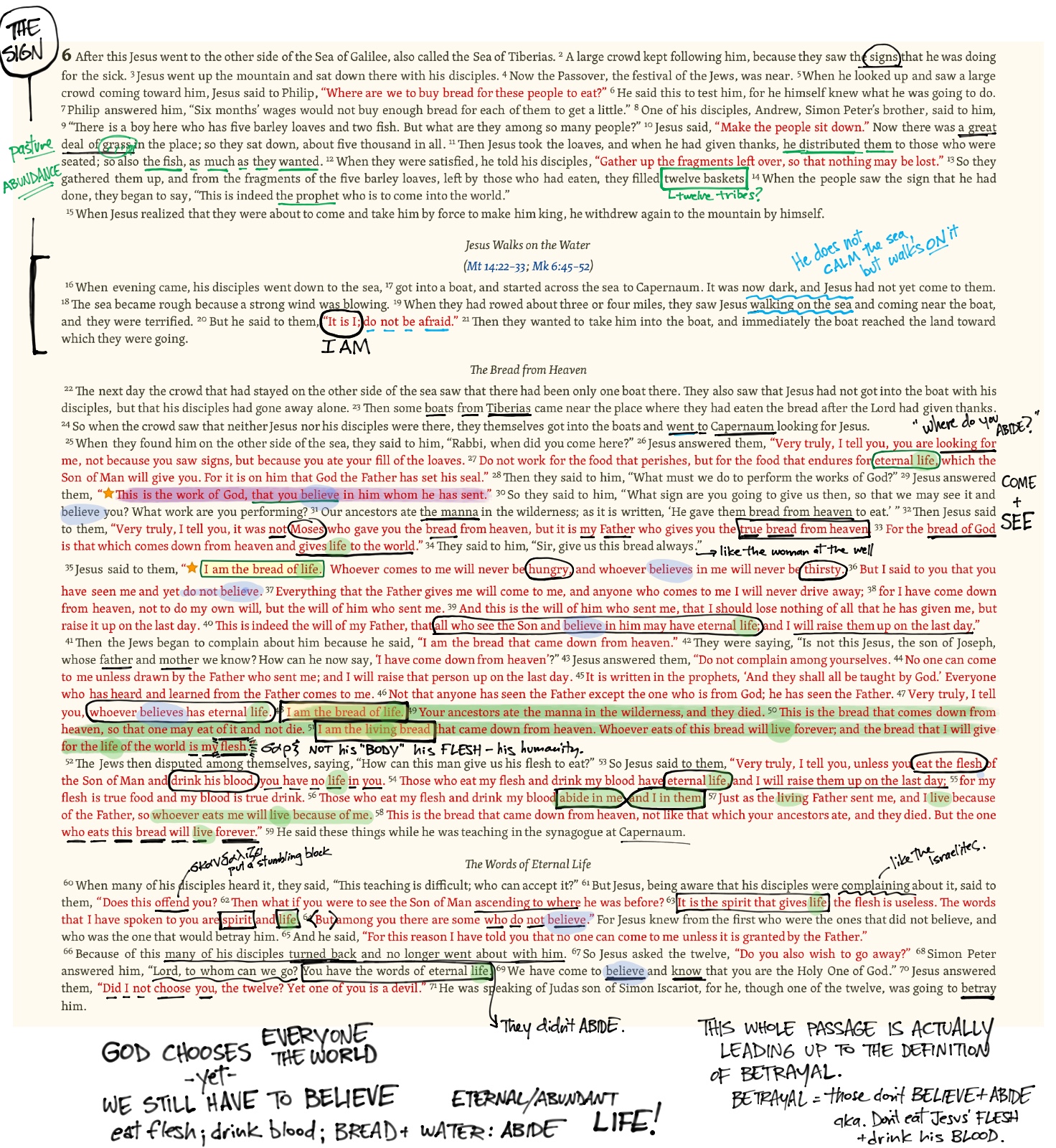
My visual commentaries always start with an analysis of the text. It is important to remember that all 71 verses work together. This follows the pattern of sign, dialogue, discourse found elsewhere in John. The sign is a simple narrative of Jesus doing something amazing. The rest of the passage is a dialogue about the mystery of the act, followed by Jesus explaining its meaning.
(Note: See the 2022 version of A Cartoonist’s Guide to John 6 HERE)
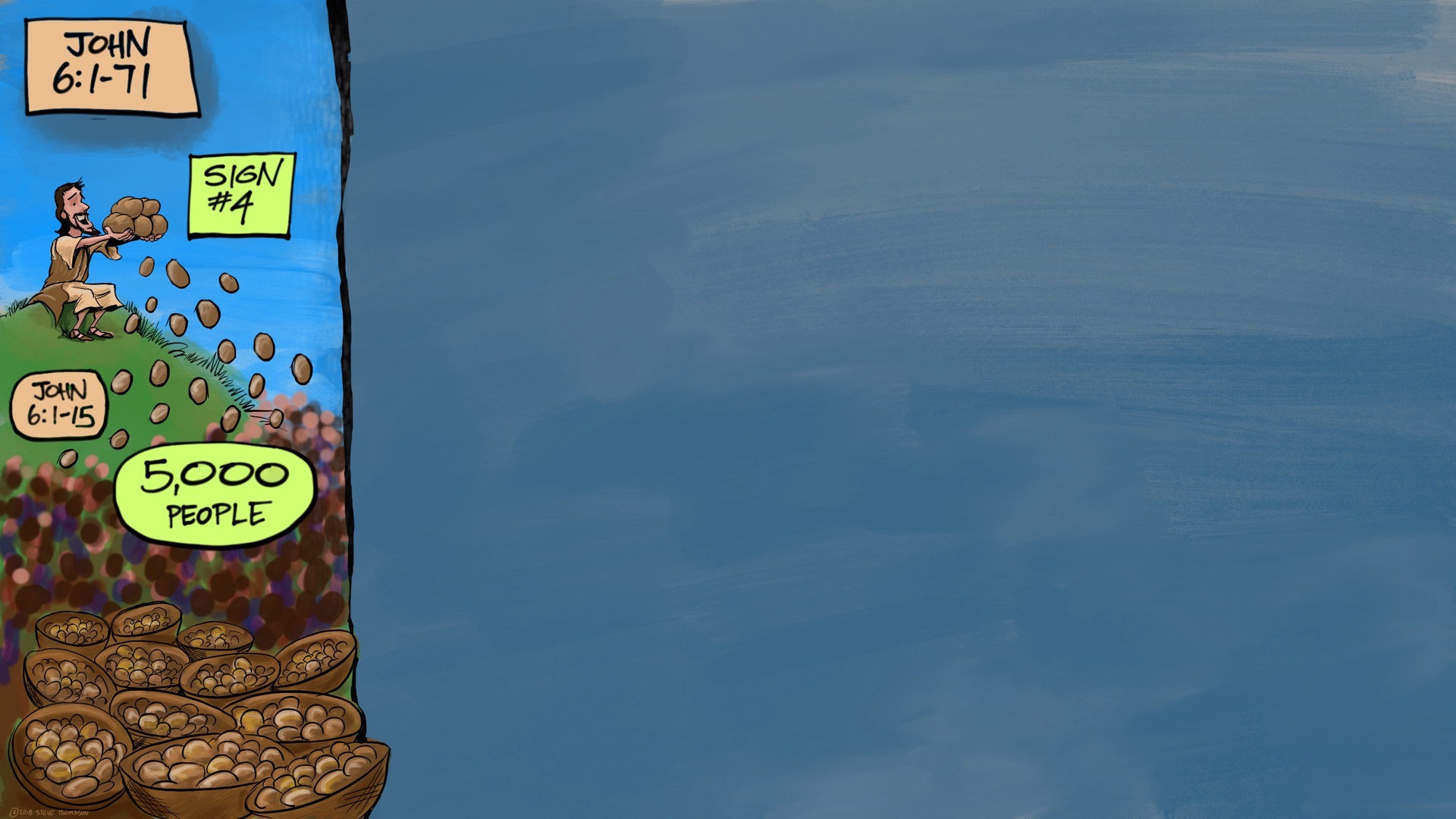
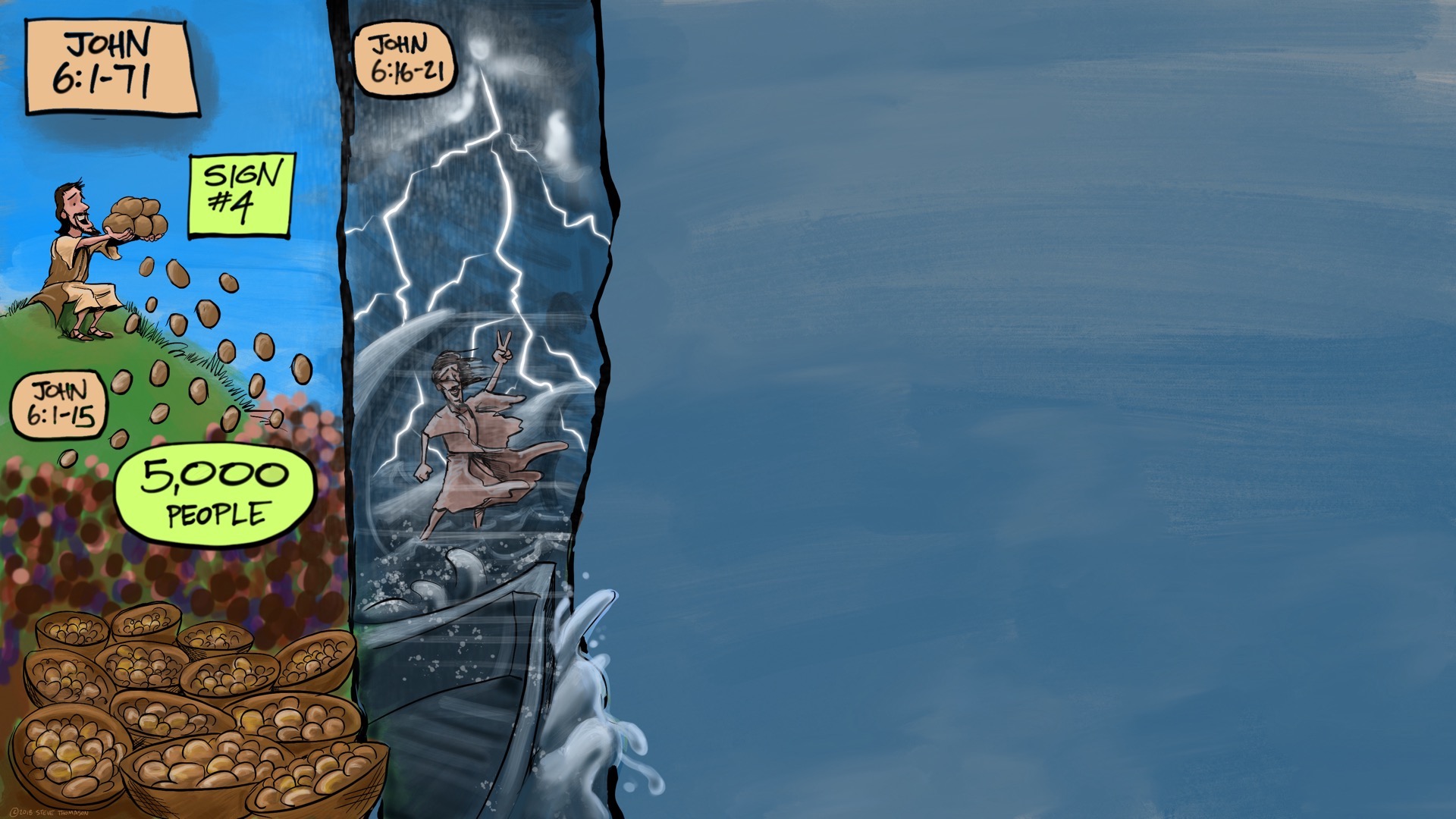
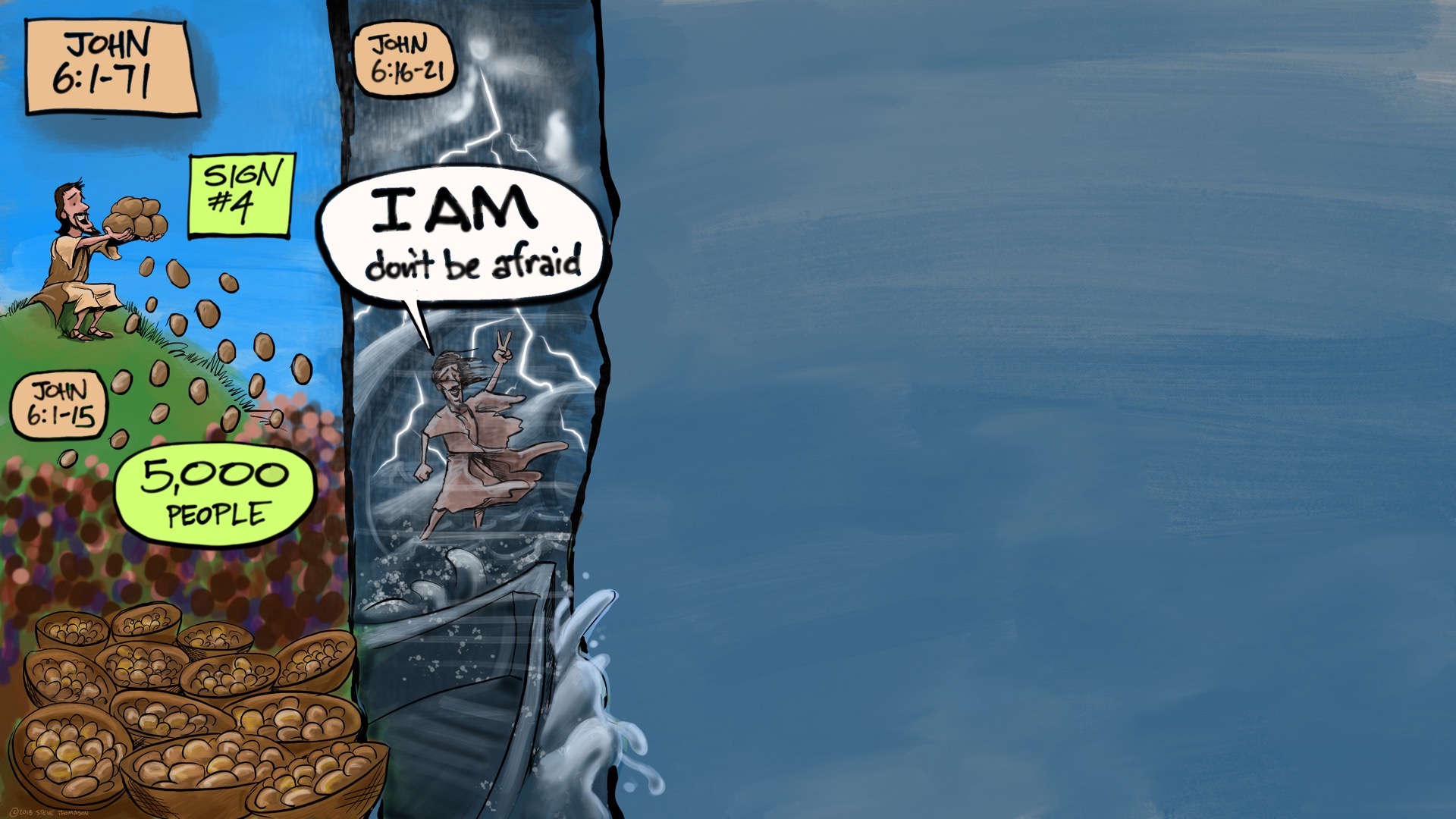
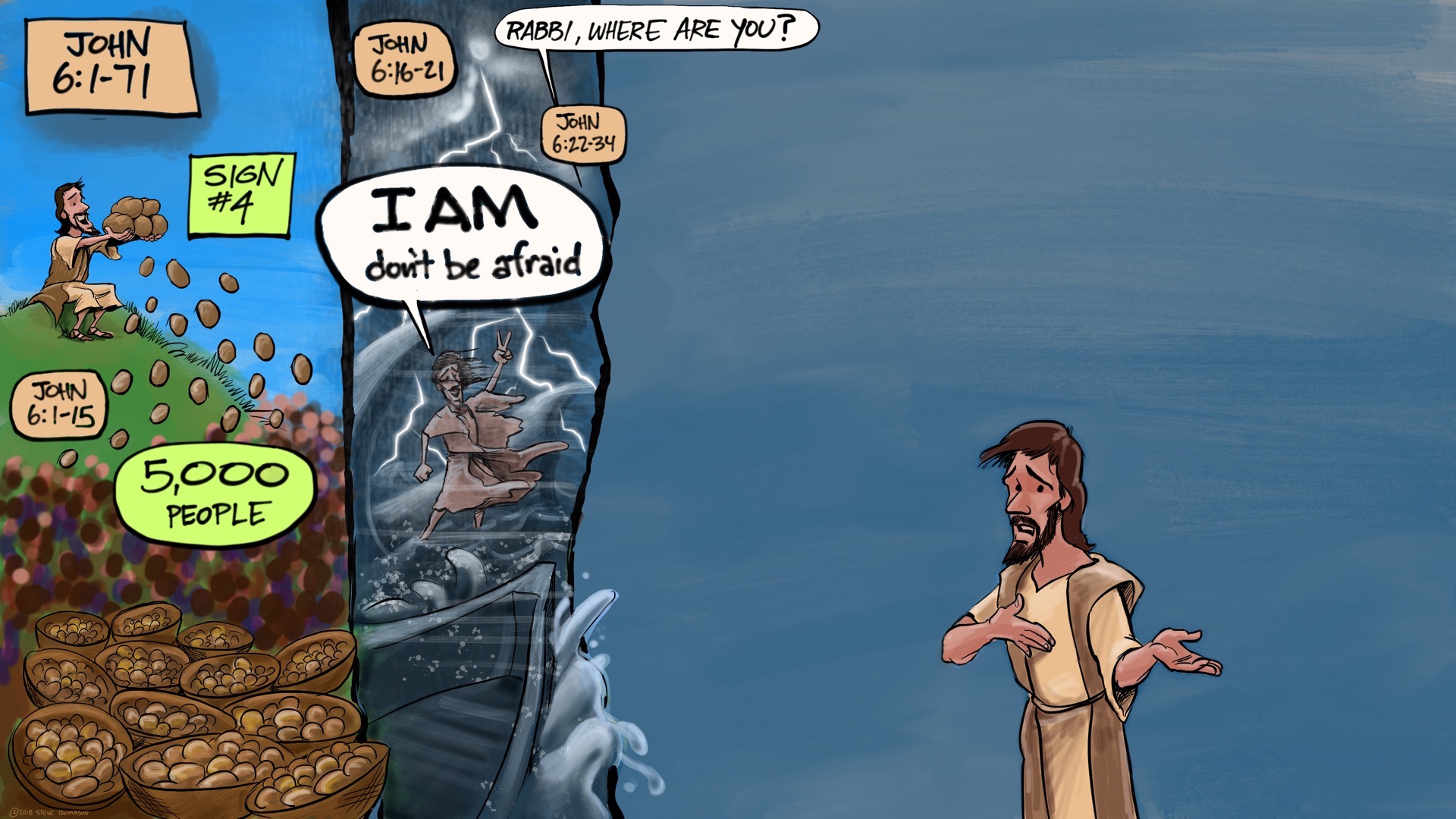
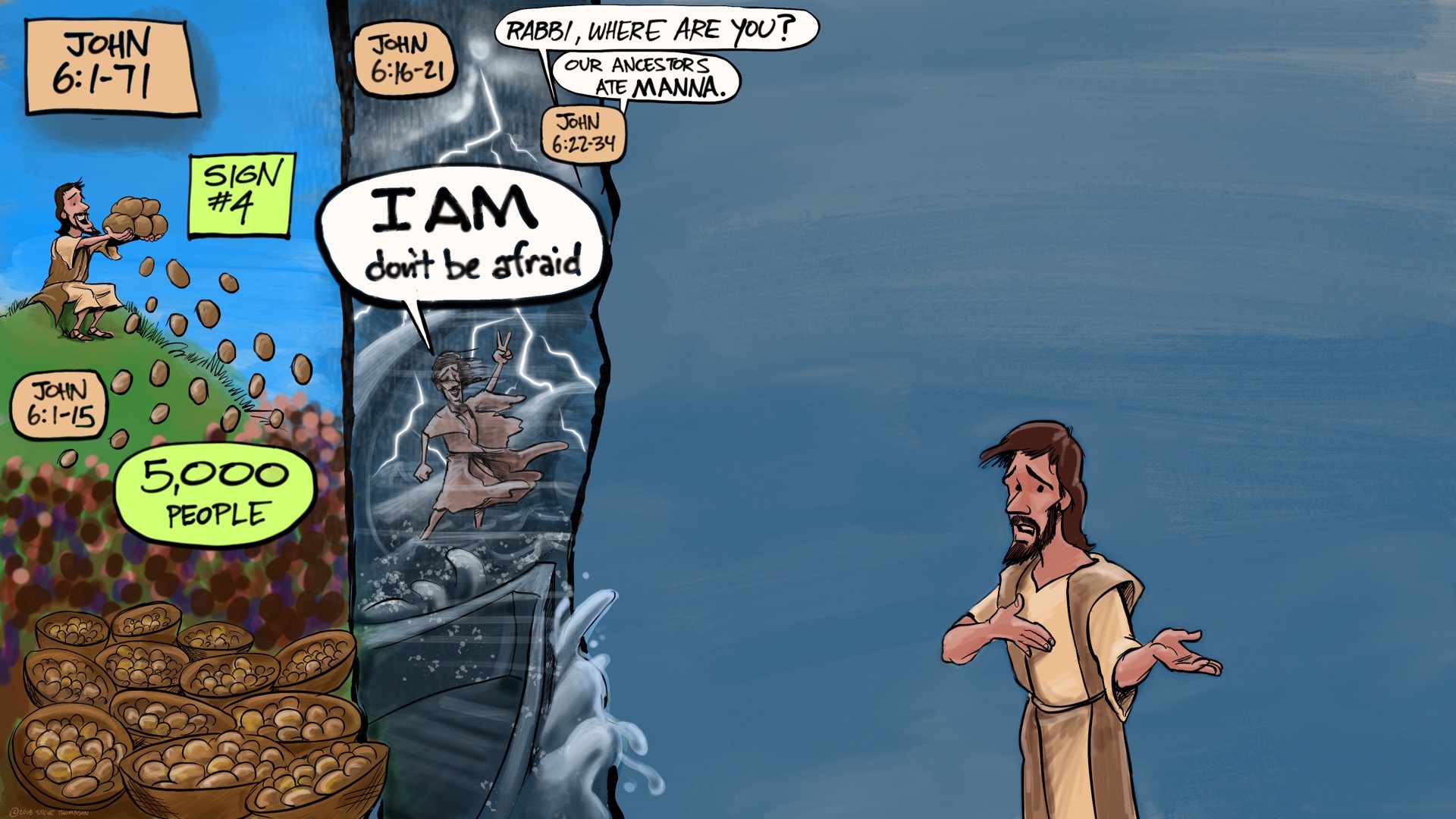
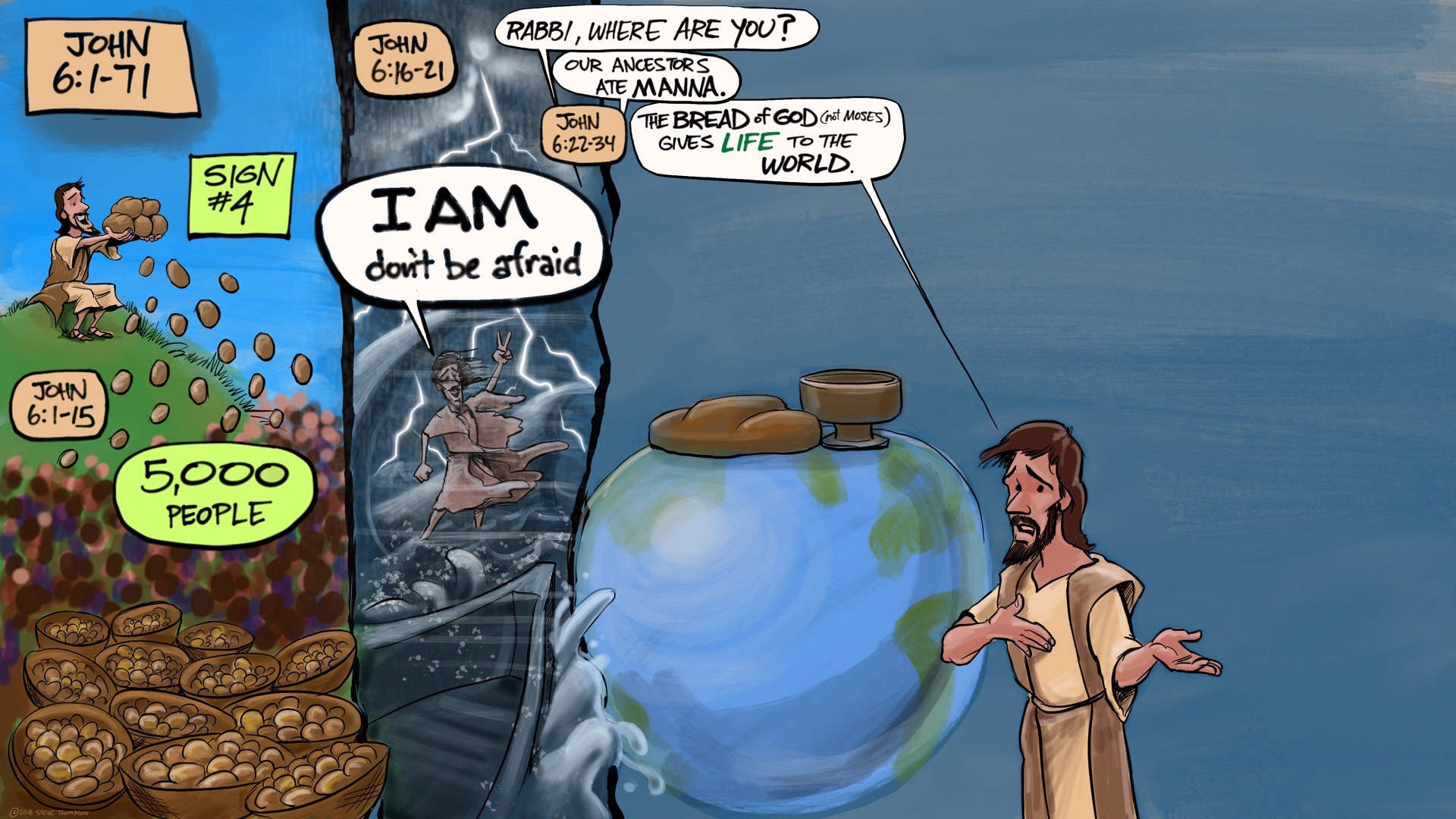
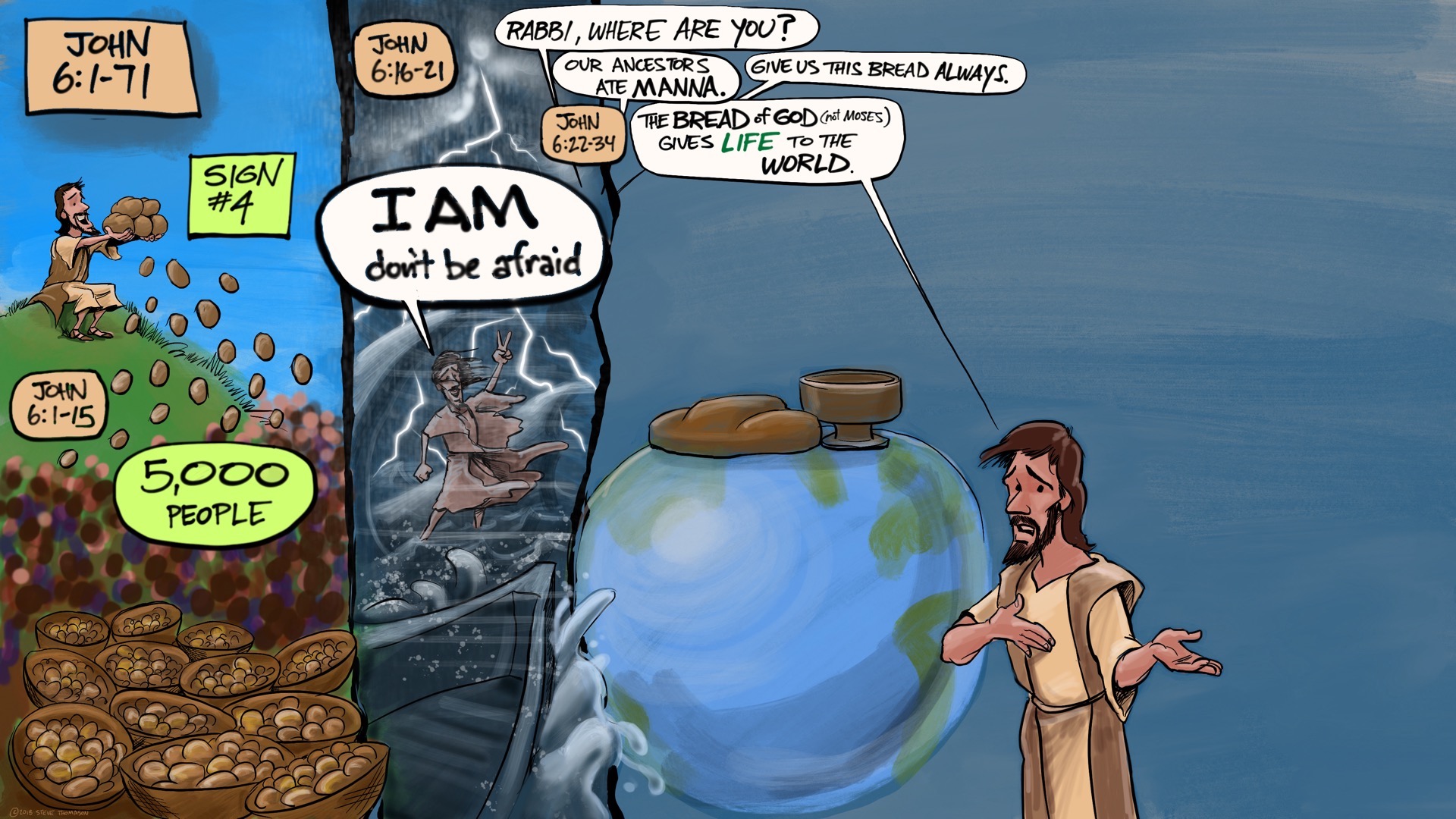
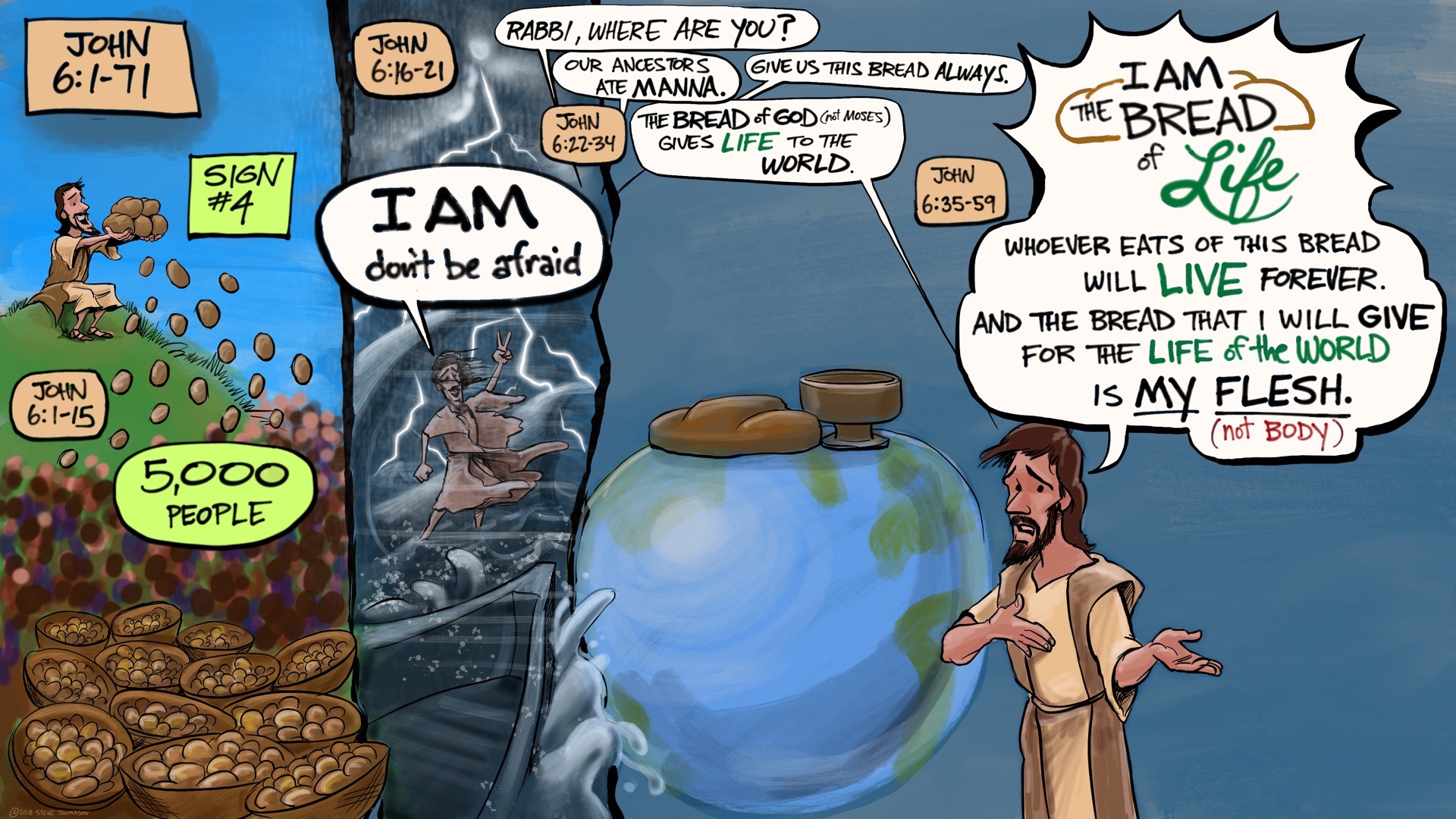
Jesus is the bread. The bread is his flesh. Notice that he did not use the term body, but flesh. “The Word became flesh and dwelt among us (John 1:14).” That’s how the story begins. The bread of God that gives life to the world is the fact that God became flesh.
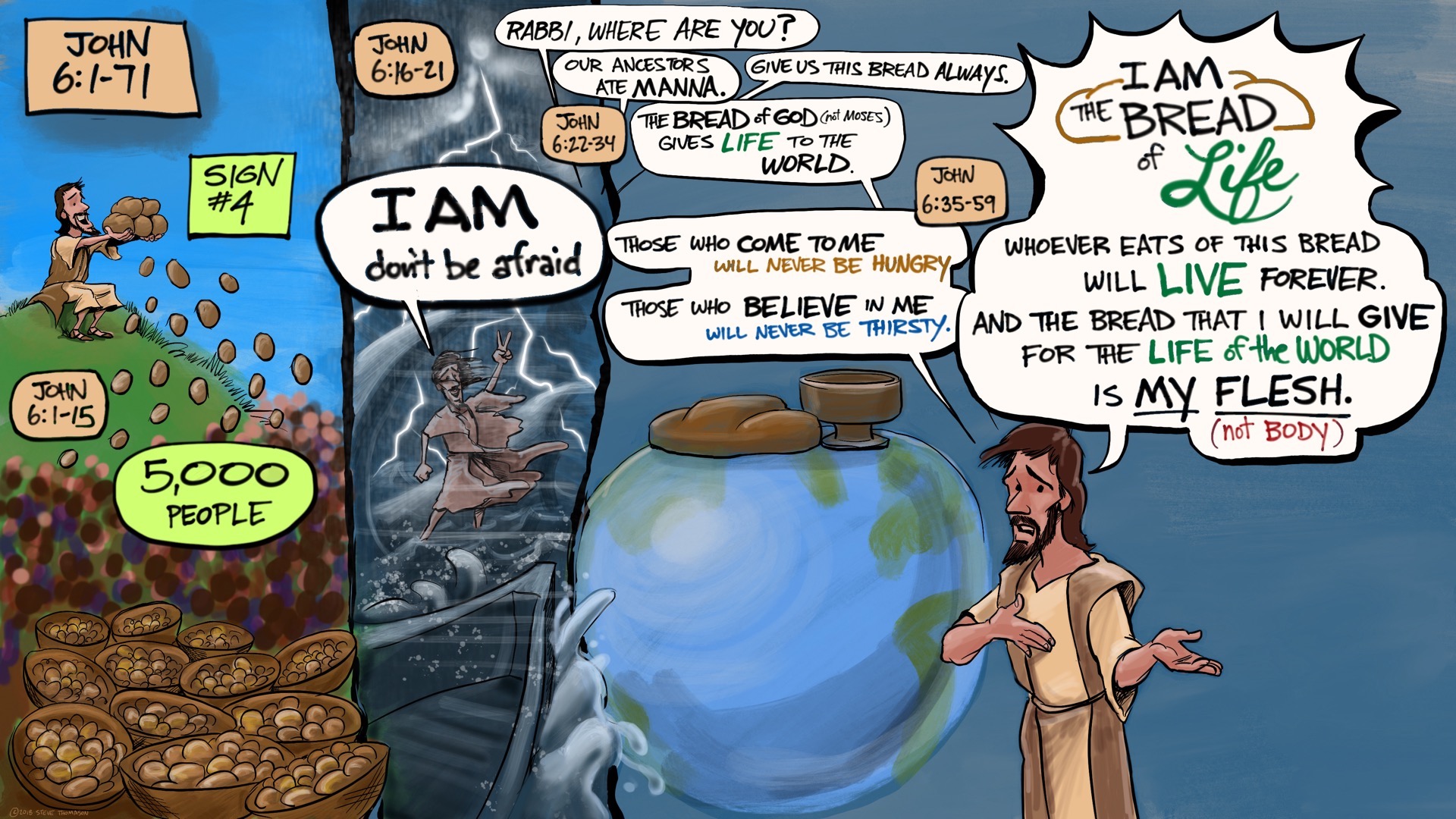
What are the two basic staples of life? Bread and water. Jesus is the source of creation and the one who provides life itself; not just a spiritual, abstract reality, but life in its fullest.
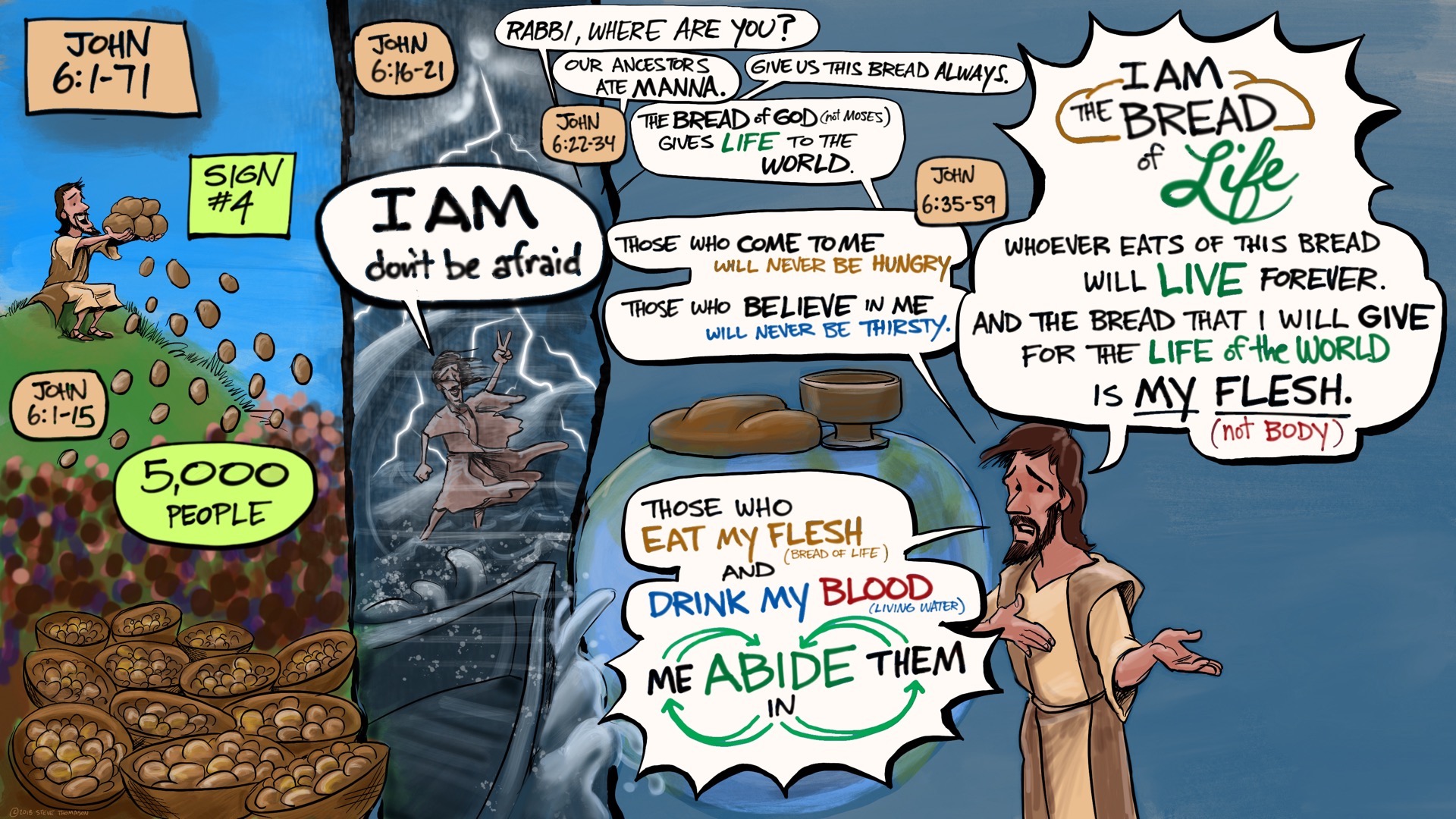
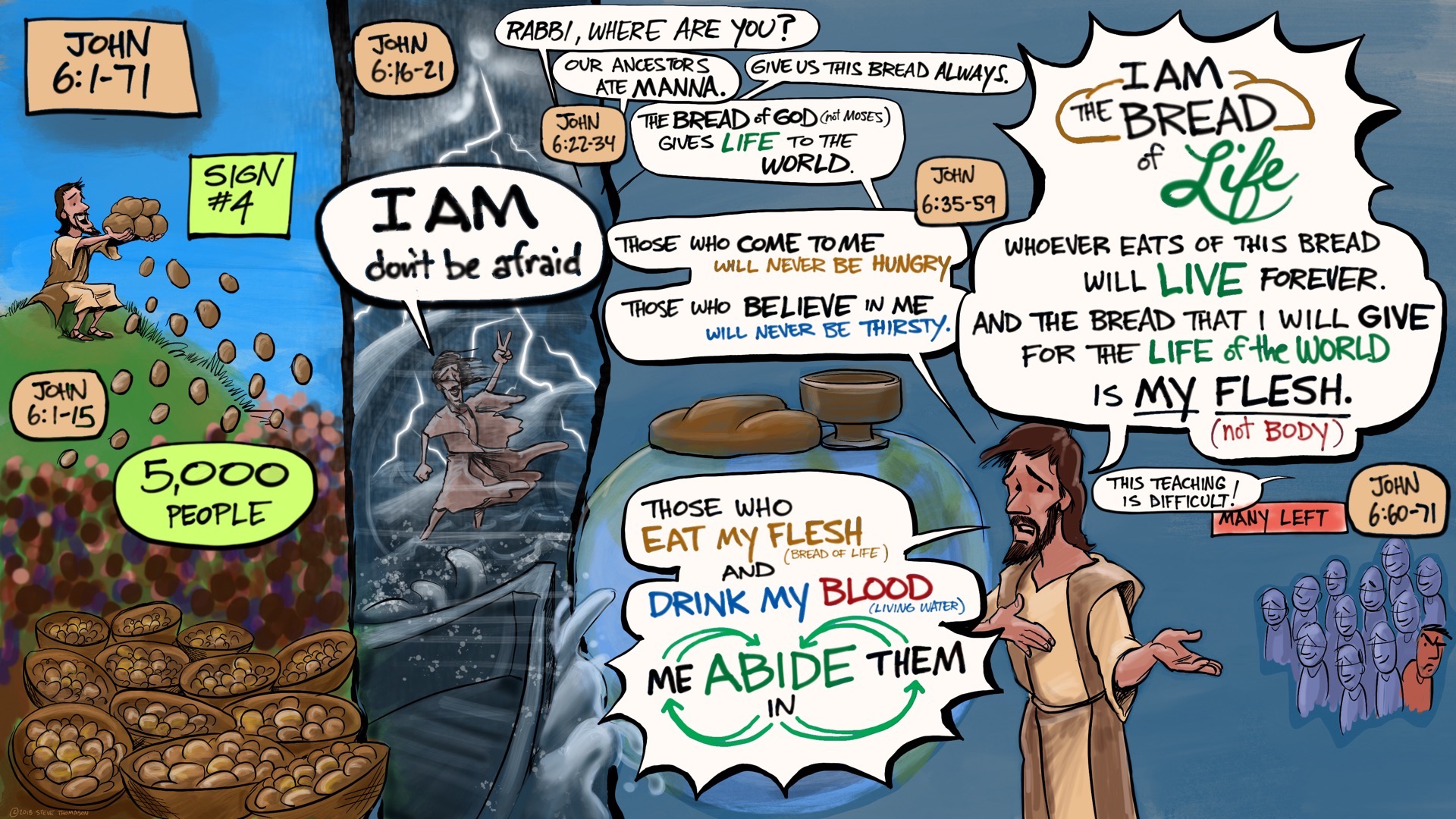
This scene reminds us of Jesus’ conversation with Nicodemus in John 3. Nicodemus took Jesus’ phrase, “You must be born again” literally and wondered how he could return to his mother’s womb. If we hear Jesus’ words here literally, then, of course, this is crazy talk.
Are we supposed to be cannibals?
Of course not. Yet, Jesus flushes out the fair-weather friends with his shocking speech. Many leave.
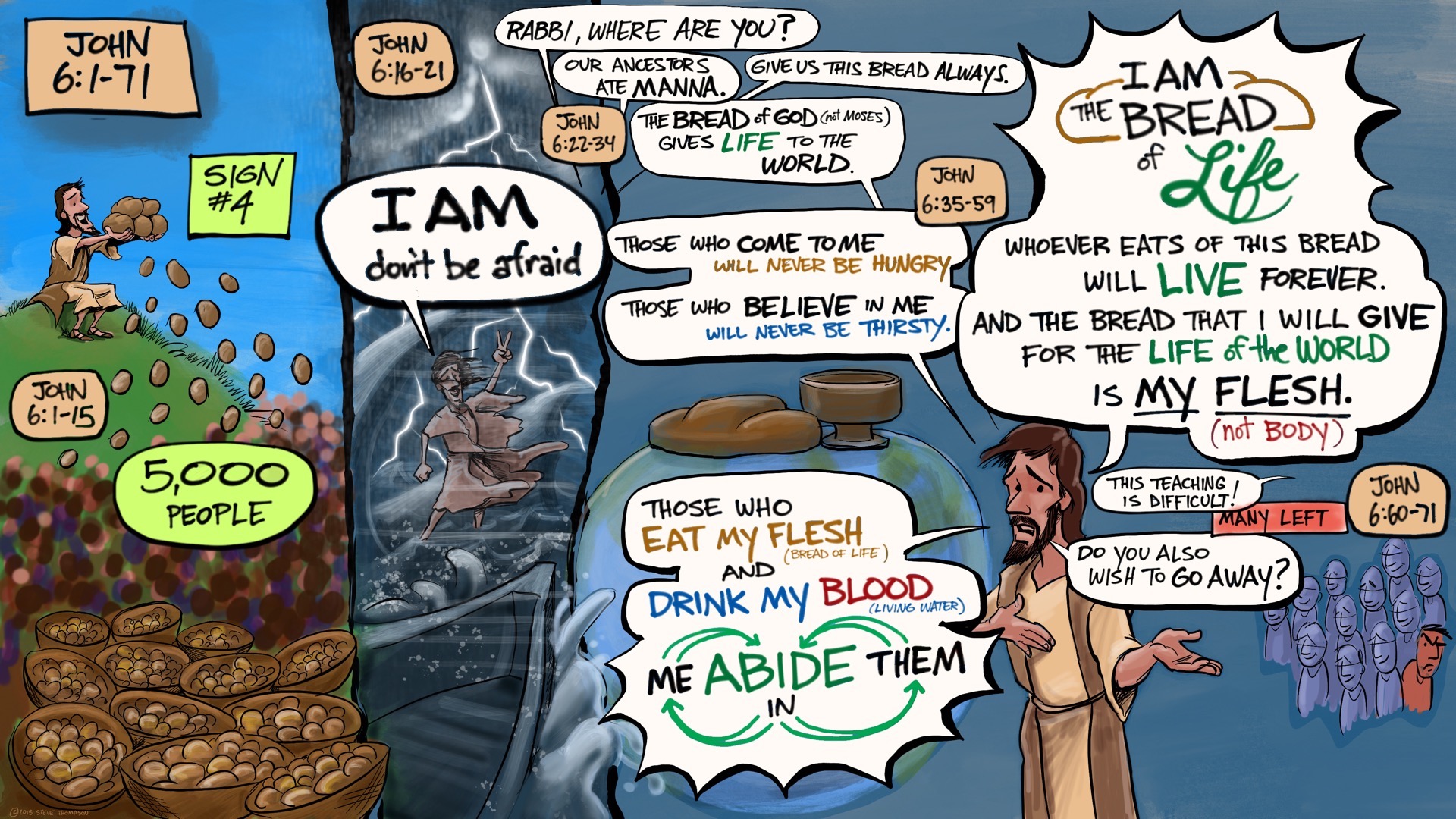
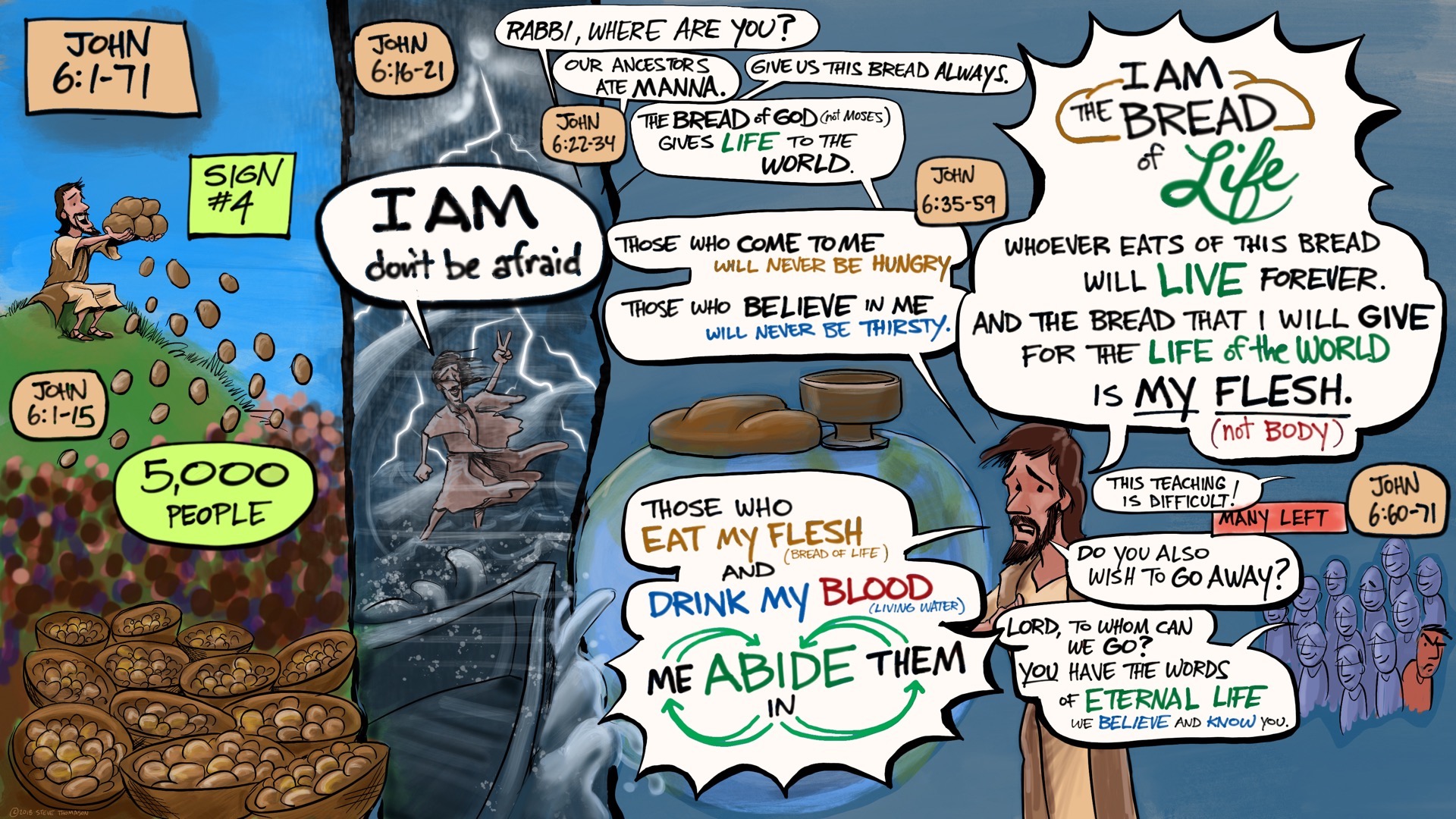
For those of you who enjoy the traditional liturgy, this is the source of the Alleluia that is sung before the reading of the Gospel each week. The disciples emphasize the point of the Gospel: they BELIEVE (TRUST) and KNOW Jesus.
This is life. It is relationship with God and each other.
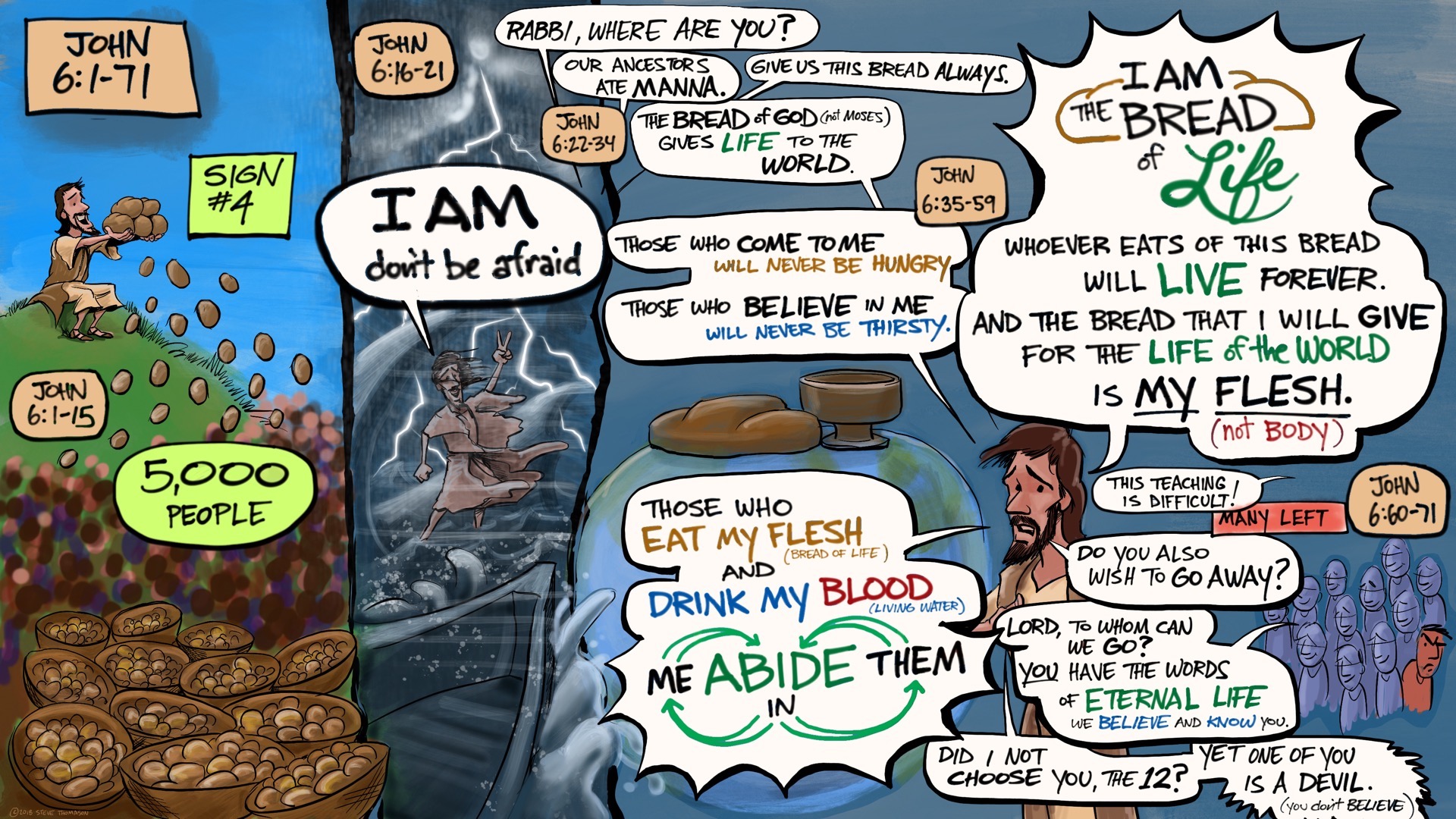
Here’s the disturbing part of this story and the plot twist. Nope, the disturbing part was not the flesh-eating and blood-drinking. The disturbing part is that one of Jesus’ closest friends, one whom Jesus chose, will turn away and sever the relationship.
The plot twist is that this whole chapter was a set up for this development in the story. Jesus has said, again and again, throughout the Gospel of John, that he is doing these signs so that people might believe/trust. Jesus gives everyone a choice. If you trust, you will abide with me and have the abundant life for which you were created. If you don’t…well, the opposite it true.
What!?!
I love what Karoline Lewis says about this:
For some denominations, the idea of decision or choice when it comes to a relationship with God will be resisted and even rejected; for others, central and celebrated. Ownership of one’s own denominational biases is essential when it comes to preaching, especially preaching Biblical texts with integrity and truthfulness. There will be some preachers who will ignore these verses altogether, thankful that the lectionary has eliminated for them a “choice” they did not want to make. Yet, to exclude these verses from the lectionary passage and from one’s own theological wrestling is to risk casting a blind eye to the very real presence of evil that this text acknowledges and that exists in all of us, even preachers. (Lewis, Karoline. John. Augsburg Fortress, 2014. p. 102)
The topic of choice is where my Evangelical background collides with my current place in the Lutheran church. Lutherans are allergic to “decisional theology.”
The Lutheran says: Salvation is a gift from God and there is nothing I can do to get it. My identity is in my baptism, and that was done for me.
The Evangelical says: Salvation is a gift from God and you must receive the gift in order for it to be yours. Once you admit you are a sinner, confess your sin, and accept Jesus as your Lord and Savior, then you are saved and you can be baptized.
Which is right? In my humble opinion, they are both right and both wrong.
A clue to this seeming dichotomy of theological perspectives may lie in a misunderstanding of the term salvation and the eternal, abundant life that Jesus offers. Jesus’ abundant life is one that is lived in flesh and blood. It is a life of unconditional love lived in and for all of creation. It is abiding with Jesus for the sake of the world. Perhaps it is less about eternal destiny in the afterlife and more about abundant living in the Kingdom of God on earth as it is in Heaven.
Yet “the world”–the human systems of hatred and violence (darkness)–has not recognized the light. We continue to kill each other, and steal, and lie, and covet, etc.
Notice the last lines of this passage. “Did I not choose you, the twelve? Yet one of you is a devil.” Judas did not trust, even though Jesus chose him.
Lewis says, “These last verses of chapter 6 attempt to articulate what is, in the end, unexplainable: why some people believe in Jesus–particularly who Jesus is in this Gospel as God incarnated–and some do not.”
Jesus is the bread of life in the flesh. Jesus is the living water, the life blood of all creation. We are invited every day to abide with Jesus, through the power of the Holy Spirit, to the glory of the Father (meaning a dynamic, intimate parent/child relationship with God), and for the sake of the world.
A loving parent will never give up on her children. God will not give up on us. God will provide the bread and water and blood and breath again and again. When we trust this to be true, then we can grow in the abundance of God’s life and overflow it with everyone.
Do you trust that?
Get the PowerPoint
If you enjoyed the images in this post and would like to use them for your own teaching and preaching, you can download them for free.
Explore Every Book of the Bible
Find cartoons, illustrations, videos, commentaries, and other helpful information about every book of the Bible.



Well done, Steve! Should be helpful for brothers and sisters in Christ seeking to live in love without fighting over which of their ancestors was ‘right’ with a certain interpretations. “When we all get to heaven…” How nice it would be for ‘all’ to live in Heavenly Kingdom love for the other and God, Now! To that end we pray and serve! Thanks again. We will be approaching this same issue in our Small Group this week in John6:25-71.
Thanks, Dad!